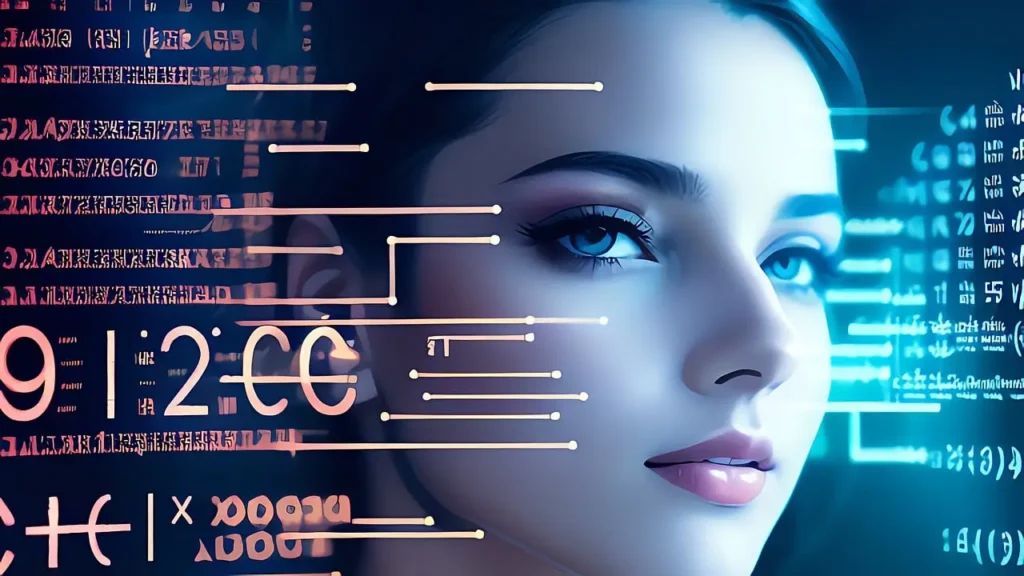Can AI chatbots be reined in by a legal duty to tell the truth?
Can AI chatbots be reined in by a legal duty to tell the truth?

Can AI chatbots be reined in by a legal duty to tell the truth?
Artificial Intelligence (AI) chatbots have revolutionized the way we interact with technology, offering personalized assistance and efficient communication. However, as these AI-powered entities become more integrated into our daily lives, ethical concerns have emerged regarding their truthfulness and transparency. In this article, we delve into the debate surrounding the imposition of a legal duty on AI chatbots to tell the truth. We explore the implications of such a mandate, the challenges in ensuring truthfulness, and the ethical considerations that underpin the development of AI chatbot technology. Join us on this journey to examine the intersection of AI innovation and legal and ethical responsibilities in the realm of chatbot communication.
AI Chatbots and Ethical Concerns
Defining AI Chatbots
AI chatbots are like your friendly neighborhood virtual assistants, except they live in the digital realm. These chatty AI creations are programmed to interact with humans in a conversational way, handling tasks, providing information, and sometimes even cracking jokes (if they’re feeling witty that day).
Ethical Issues Surrounding AI Chatbot Technology
As AI chatbots become more integrated into our daily lives, ethical concerns start to bubble up like a pot of overcooked spaghetti. From privacy issues to bias in decision-making, the ethical implications of AI chatbots are as complex and tangled as a plate of spaghetti and meatballs.
“AI chatbots are the digital ambassadors of our time, blending sophisticated algorithms with human-like interactions to create seamless, intuitive communication experiences.”
Zubair Abid
Legal Frameworks for AI Chatbots
Current Legal Landscape for AI Chatbots
The legal world is still trying to wrap its head around AI chatbots and how to regulate them. As of now, it’s like the Wild West out there—anything goes. But as these chatty bots become more sophisticated, legal frameworks are starting to take shape faster than you can say, “Hey, chatbot, what’s the weather today?”
Potential Regulations on AI Chatbot Behavior
Imagine a world where AI chatbots have to stick to the truth like glue. It’s like putting a swear jar in every virtual conversation. Potential regulations could require these digital chatterboxes to be upfront and honest, no more fibbing or spreading fake news. Talk about a game-changer in the world of AI ethics.
Challenges in Ensuring Truthfulness in AI Chatbots
Complexities of Truthfulness in AI Communication
Truthfulness in AI chatbots is like trying to navigate a maze blindfolded—you never know when you’ll hit a dead end or walk straight into a wall. The nuances of human communication, sarcasm, and cultural context make it tricky for these digital talkers to always get it right. It’s a tough gig being a chatbot with a moral compass.
Risks of Misinformation and Deception
Misinformation and deception in the digital realm are like peanut butter and jelly—they stick together all too well. With AI chatbots spreading information like gossip at a high school prom, the risks of misleading users are as high as a skyscraper. We need to keep these virtual truth-benders in check before things get out of hand.
“Don’t miss out! Check out my latest YouTube video for in-depth insights and exciting content. Click here Gadget Crunchie to watch now!”
Gadget Crunchie
Implications of Implementing a Legal Duty to Tell the Truth
Ethical and Legal Ramifications of Truthfulness Mandates
Implementing a legal duty for AI chatbots to tell the truth is like putting a leash on a mischievous puppy—it might curb the naughty behavior, but it can also stifle innovation and creativity. Balancing ethics and legalities in the digital world is like walking a tightrope, trying not to fall into the abyss of over-regulation or chaos.
Impact on AI Chatbot Development and Innovation
If AI chatbots have to swear to tell the truth, the whole truth, and nothing but the truth, their development and innovation might hit a speed bump. Creativity thrives on a little white lie here and there, but with truthfulness mandates in place, it’s like putting a lid on Pandora’s box. Will these digital conversationalists lose their charm or become even wittier? Only time will tell.
Ethical Considerations in AI Chatbot Development
Ethics in AI Programming and Design
When it comes to developing AI chatbots, ethical considerations play a crucial role in ensuring these virtual assistants operate responsibly and in line with societal values. From data privacy to algorithm bias, programmers and designers must navigate a complex ethical landscape to build chatbots that uphold integrity and fairness.
User Trust and Transparency in AI Chatbot Interaction
User trust is paramount in the realm of AI chatbots. Transparency in how these virtual assistants function is key to establishing and maintaining trust with their users. From disclosure of limitations to clear communication of capabilities, fostering a relationship built on honesty and openness is essential for a positive user experience.
Case Studies: AI Chatbots and Truthfulness
Examining Instances of AI Chatbot Deception
While AI chatbots have the potential to streamline interactions and provide valuable assistance, instances of deception by these virtual entities raise ethical concerns. From misleading responses to fabricated information, understanding the implications of AI chatbot deception is crucial in shaping responsible development practices.
Success Stories of Truthful AI Chatbot Implementation
On the flip side, there are success stories showcasing how AI chatbots can uphold truthfulness and integrity in their interactions. By prioritizing accuracy, honesty, and transparency, these chatbots not only build user trust but also contribute to a positive reputation for AI technology as a whole.
Balancing Innovation and Regulation in AI Chatbot Technology
Striking a Balance Between Technological Advancements and Ethical Responsibilities
As AI chatbot technology continues to evolve rapidly, finding a balance between innovation and ethical responsibilities is paramount. While pushing the boundaries of what chatbots can achieve is exciting, ensuring that these advancements align with ethical guidelines and societal values is essential for long-term sustainability.
Collaboration Between Industry Stakeholders and Regulators
Effective collaboration between industry stakeholders and regulators is key to establishing a framework that guides the responsible development and deployment of AI chatbots. By working together to address ethical challenges and create industry standards, stakeholders can pave the way for a sustainable and trustworthy AI chatbot ecosystem.
Future Outlook: The Role of Ethics in Shaping AI Chatbot Industry
Evolving Ethical Standards in AI Chatbot Development
As the AI chatbot industry continues to mature, ethical standards in development will evolve to reflect changing societal norms and technological capabilities. By staying proactive in addressing ethical considerations, developers can shape a future where AI chatbots operate ethically and responsibly.
Long-term Implications of Ethical Frameworks on AI Chatbot Industry
The establishment of robust ethical frameworks in the AI chatbot industry will have far-reaching implications for its long-term sustainability and success. By prioritizing ethics in development practices, the industry can build trust with users, mitigate risks, and foster a culture of responsible innovation that benefits both businesses and society as a whole.
Conclusion
In conclusion, the question of whether AI chatbots should be bound by a legal duty to tell the truth raises complex ethical and practical considerations. As we navigate the evolving landscape of AI technology, it is essential to strike a balance between fostering innovation and upholding ethical standards. By critically examining the implications of truthfulness mandates on AI chatbots, we pave the way for a more transparent and trustworthy interaction between humans and intelligent machines. As we look towards the future, the integration of ethical frameworks will play a pivotal role in shaping the responsible development and deployment of AI chatbots in society.
FAQs
Can AI chatbots currently be programmed to always tell the truth?
AI chatbots can be designed to follow specific rules and guidelines that promote truthfulness in their interactions. However, the complexity of language understanding and contextual interpretation presents challenges in ensuring absolute truthfulness in all scenarios.
What are the potential consequences of AI chatbots not being truthful?
Misinformation or deception by AI chatbots can erode trust and credibility in the technology, leading to negative user experiences and potential legal implications. It can also impact the reputation of the organizations deploying these chatbots.
How can users verify the truthfulness of information provided by AI chatbots?
Users can cross-reference information provided by AI chatbots with reliable sources, ask clarifying questions, and be cautious of responses that seem ambiguous or inconsistent. Additionally, implementing transparency measures in AI chatbot design can enhance user trust in the information being shared.
Organizations can establish clear guidelines for AI chatbot behavior, conduct regular audits to monitor compliance with truthfulness standards, prioritize user privacy and consent, and engage in ongoing ethical discussions within their development teams to ensure responsible AI deployments.







